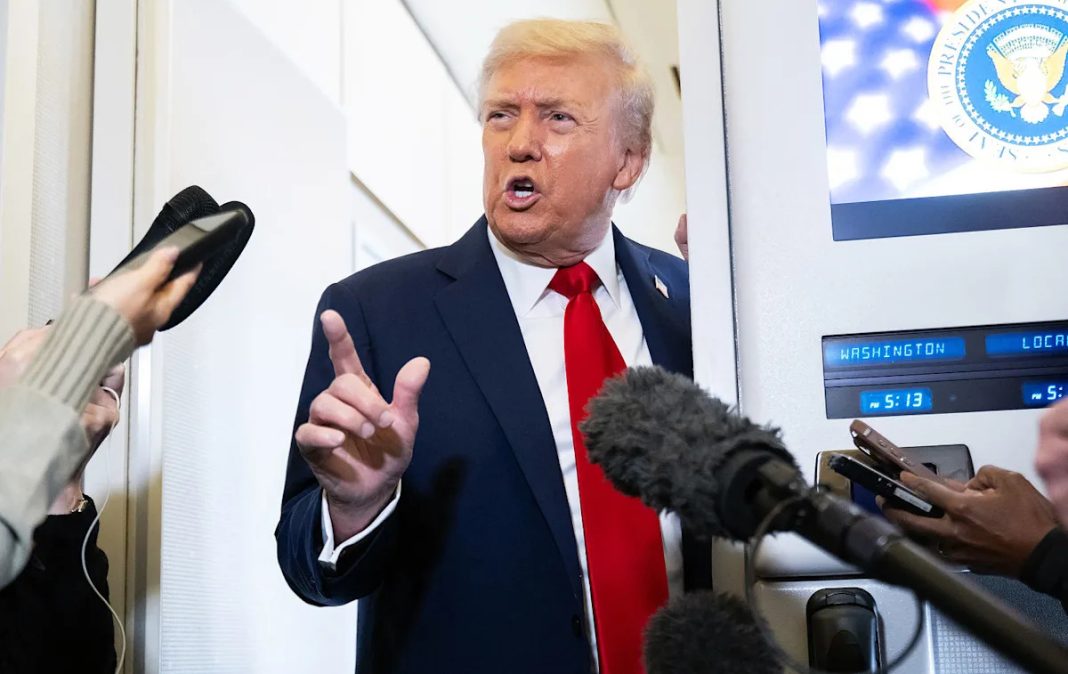With time running out before the government shutdown began nearly four weeks ago, Donald Trump half-heartedly hosted a meeting in the Oval Office with Democratic and Republican congressional leaders from the House and Senate. To the surprise of no one, the discussion proved pointless, and the shutdown soon followed.
But during that ill-fated conversation, something weird happened: Participants noticed that red hats suddenly appeared on the president’s desk. The text on the hats read “Trump 2028.”
In the immediate aftermath, the president started publishing assorted images to his social media platform in apparent celebration of the hats and their message. In one especially jarring instance, the Republican posted an AI-generated video of Trump tossing a “Trump 2028” cap onto the head House Minority Leader Hakeem Jeffries.
All of this was ridiculous, of course, but it was also a reminder that the president apparently likes to stoke the underlying rhetorical fire from time to time, as if another re-election bid were still a possibility for him — the Constitution be damned.
A month later, he’s leaning into the idea anew. Reuters reported:
U.S. President Donald Trump on Monday ruled out running for vice president in the 2028 election but declined to definitively say he would not seek a third term, keeping alive speculation about how he might seek to extend his time in office.
The Republican called the idea of running for vice president “too cute,” adding that voters “wouldn’t like that,” but he was far less definitive about the broader issue.
After claiming he hasn’t “thought about” the 2028 race, the Republican said he has “the best poll numbers” he’s ever had, concluding, “I would love to do it.”
His claim about not having thought about the issue was obviously silly — the hats were a dead giveaway — and the idea that his public standing is at an all-time high is demonstrably absurd.
But when Trump said he’d “love” to run again, that was believable.
In March, the president told NBC News that he was “not joking” about pursuing a possible third term. Two months later, he addressed U.S. troops stationed at the Al Udeid Air Base in Doha and declared, “As you know, we won three elections, OK? And some people want us to do a fourth. I don’t know, I’ll have to think about that.”
There was — and is — nothing to think about. What Trump keeps referring to is plainly not legal. The 22nd Amendment to the U.S. Constitution says, “No person shall be elected to the office of the President more than twice.”
The incumbent Republican and some of his allies continue to suggest there’s some hidden wiggle room in that phrasing, but legal scholars know better.
What’s more, the public isn’t exactly clamoring for the idea: A Washington Post/ABC News/Ipsos poll conducted earlier this year found that 80% of Americans do not want Trump to serve a third term.
I won’t pretend to know where this is headed or the degree to which the president is prepared to defy the Constitutional, but Scott Cummings, a professor of legal ethics at the UCLA School of Law, made a comment on “The Rachel Maddow Show” in March that stood out for me.
Commenting on autocracies around the world that have consolidated power, Cummings noted that in none of these countries “do leaders do all the things that Trump is doing, take aim at all of these independent institutions, and then just walk away.” Rather, the professor added, authoritarians take these steps because they intend “to stay in power permanently.”
This post updates our related earlier coverage.
This article was originally published on MSNBC.com

